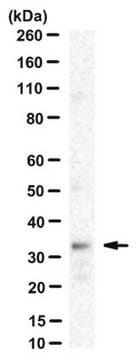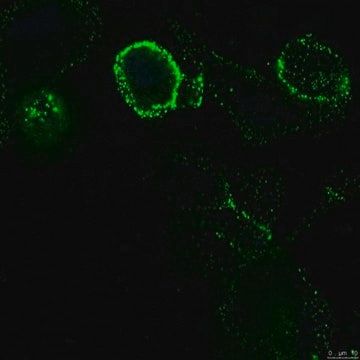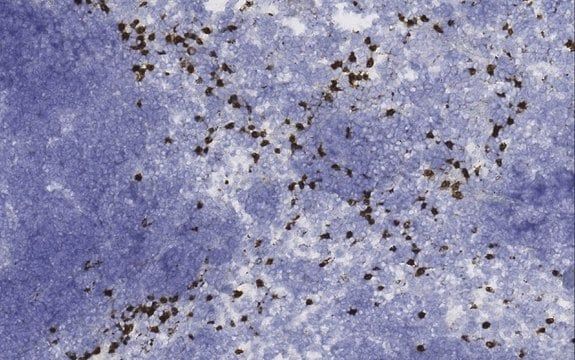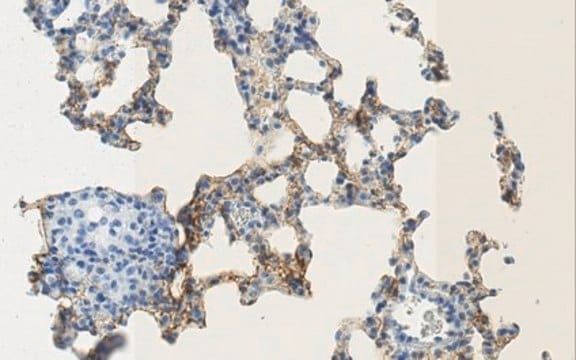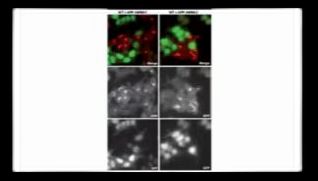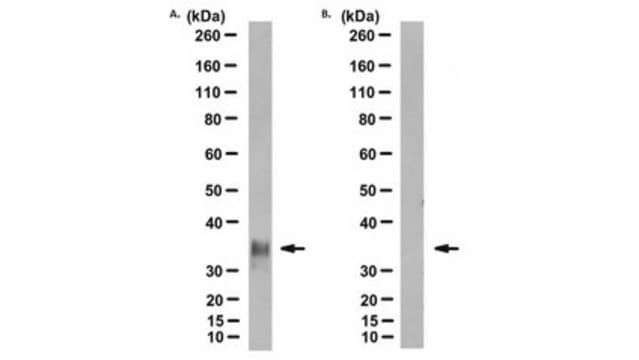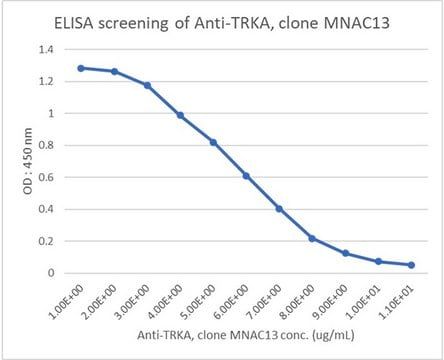MABN2287
Anti-APP Antibody, clone 1D1
clone 1D1, from rat
Manufacturer: Sigma Aldrich
Synonym(S): Amyloid beta A4 protein, ABPP, APPI, Alzheimer disease amyloid protein, Amyloid precursor protein, Beta-amyloid precursor protein, Cerebral vascular amyloid peptide, CVAP, PreA4, Protease nexin-II, PN-II
Select a Size
| Pack Size | SKU | Availability | Price |
|---|---|---|---|
| 100 μL | MABN2287-100-μL | In Stock | ₹ 41,010.01 |
MABN2287 - 100 μL
In Stock
Quantity
1
Base Price: ₹ 41,010.01
GST (18%): ₹ 7,381.802
Total Price: ₹ 48,391.812
biological source
rat
Quality Level
100
antibody form
purified immunoglobulin
antibody product type
primary antibodies
clone
1D1, monoclonal
species reactivity
human
technique(s)
ELISA: suitableflow cytometry: suitableimmunocytochemistry: suitableimmunohistochemistry: suitable (paraffin)western blot: suitable
isotype
IgG1κ
NCBI accession no.
NP_000475
UniProt accession no.
P05067
Description
- General description: Amyloid beta A4 protein (UniProt: P05067; also known as ABPP, APPI, APP, Alzheimer disease amyloid protein, Amyloid precursor protein, Beta-amyloid precursor protein, Cerebral vascular amyloid peptide, CVAP, PreA4, Protease nexin-II, PN-II) is encoded by the APP (also known as A4, AD1) gene (Gene ID: 351) in human. APP undergoes extensive post-translational modification including glycosylation, phosphorylation, and tyrosine sulfation, as well as many types of proteolytic processing to generate peptide fragments. APP is proteolytically processed under normal cellular conditions by alpha-secretase or beta-secretase to generate and release soluble APP peptides, S-APP-alpha and S-APP-beta, and the retention of corresponding membrane-anchored C-terminal fragments, C80, C83 and C99. Subsequent processing of C80 and C83 by gamma-secretase yields P3 peptides. In Alzheimer s disease processing of C99 generates amyloid-beta 40 (Abeta40) and amyloid-beta 42 (Abeta42) that form amyloid plaques. Beta-amyloid peptides are lipophilic metal chelators with metal-reducing activity. They bind transient metals such as copper, zinc and iron. APP can also be cleaved by caspases during neuronal apoptosis. Cleavage at Asp-739 by either caspase-6, -8 or -9 results in the production of the neurotoxic C31 peptide and the increased production of beta-amyloid peptides. In addition to its obvious role in Alzheimer′s disease, the most-substantiated role for APP is in synaptic formation and repair. Its expression is upregulated during neuronal differentiation and after neural injury. Clone 1D1 is shown to bind to the N-terminus of APP and detects both the soluble full length and secreted hAPP and can also detect transgenic APP expression in APP-transgenic animal models.
- Specificity: Clone 1D1 specifically detects human amyloid precursor protein (APP) and does not display reactivity with other species. It targets an epitope within the ectodomain region of APP and does not react with A beta peptide.
- Immunogen: StrepII-tagged human recombinant ectodomain region of the neuronal isoform of hAPP695 lacking the KPI domain.
- Application: Anti-APP, clone 1D1, Cat. No. MABN2287, is a highly specific rat monoclonal antibody that targets Amyloid beta A4 protein and has been tested for use in ELISA, Flow Cytometry, Immunocytochemistry, Immunohistochemistry (Paraffin), and Western Blotting.
- Quality: Evaluated by Western Blotting in HEK293 cell lysate.Western Blotting Analysis: 1 µg/mL of this antibody detected APP in 10 µg of HEK293 cell lysate.
- Target description: ~100 kDa observed; 86.94 kDa calculated. Uncharacterized bands may be observed in some lysate(s).
- Physical form: Format: Purified
- Storage and Stability: Stable for 1 year at 2-8°C from date of receipt.
- Other Notes: Concentration: Please refer to lot specific datasheet.
- Disclaimer: Unless otherwise stated in our catalog or other company documentation accompanying the product(s), our products are intended for research use only and are not to be used for any other purpose, which includes but is not limited to, unauthorized commercial uses, in vitro diagnostic uses, ex vivo or in vivo therapeutic uses or any type of consumption or application to humans or animals.
SAFETY INFORMATION
WGK
WGK 1
Flash Point(F)
does not flash
Flash Point(C)
does not flash
Compare Similar Items
Show Difference
biological source: rat
Quality Level: 100
antibody form: purified immunoglobulin
antibody product type: primary antibodies
clone: 1D1, monoclonal
species reactivity: human
technique(s): ELISA: suitableflow cytometry: suitableimmunocytochemistry: suitableimmunohistochemistry: suitable (paraffin)western blot: suitable
isotype: IgG1κ
NCBI accession no.: NP_000475
UniProt accession no.: P05067
biological source:
rat
Quality Level:
100
antibody form:
purified immunoglobulin
antibody product type:
primary antibodies
clone:
1D1, monoclonal
species reactivity:
human
technique(s):
ELISA: suitableflow cytometry: suitableimmunocytochemistry: suitableimmunohistochemistry: suitable (paraffin)western blot: suitable
isotype:
IgG1κ
NCBI accession no.:
NP_000475
UniProt accession no.:
P05067
biological source: mouse
Quality Level: 100
antibody form: purified immunoglobulin
antibody product type: primary antibodies
clone: POM2, monoclonal
species reactivity: mouse, human
technique(s): ELISA: suitableimmunocytochemistry: suitableimmunofluorescence: suitableimmunohistochemistry: suitableimmunoprecipitation (IP): suitablewestern blot: suitable
isotype: IgG1κ
NCBI accession no.: NP_001265185
UniProt accession no.: __
biological source:
mouse
Quality Level:
100
antibody form:
purified immunoglobulin
antibody product type:
primary antibodies
clone:
POM2, monoclonal
species reactivity:
mouse, human
technique(s):
ELISA: suitableimmunocytochemistry: suitableimmunofluorescence: suitableimmunohistochemistry: suitableimmunoprecipitation (IP): suitablewestern blot: suitable
isotype:
IgG1κ
NCBI accession no.:
NP_001265185
UniProt accession no.:
__
